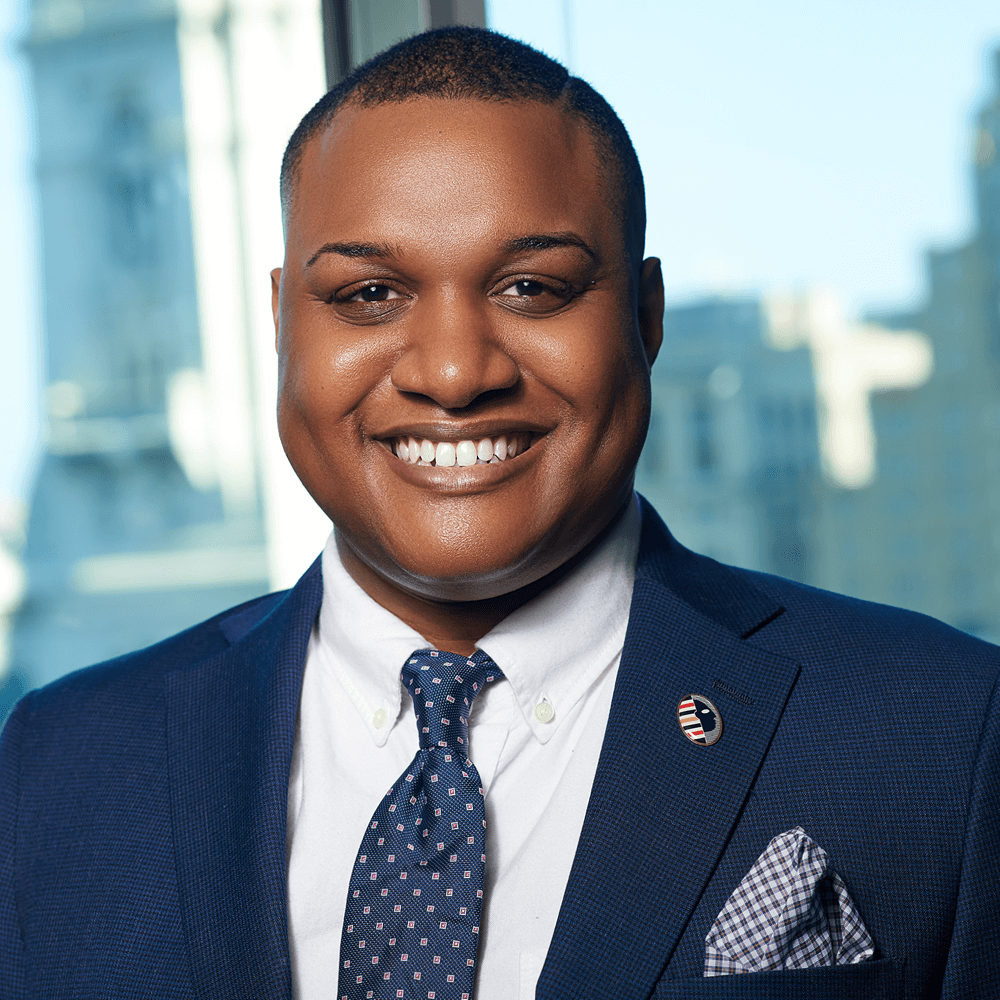
Ernest Owens, a devoted advocate for all communities of color
As he has progressed throughout his professional career in media, Owens has aimed to become a voice for all the diverse communities in Philadelphia.
When Ernest Owens decided he wanted to pursue a career in media, it was because he saw how powerful and influential the media is as a mechanism.
Originally, he entered college at the University of Pennsylvania with an interest in politics, with the belief that political power was the main catalyst for change.
However, as the years went on, Owens started to see how the media and its frequent consumption is what truly shaped many people’s perception of politicians, communities, pop culture and more.
“And that’s when I said, ‘I want to be a part of that movement,’” Owens said in an interview with AL DÍA.
Upon changing his major from political science to communications, he began studying the effect media has on individuals and communities and explored various forms of journalism in the process.
He had a radio show, wrote as a columnist for UPenn’s student newspaper, The Daily Pennsylvanian, and also did some television news, further developing his interest.
However, during that process, Owens began to notice something very glaring.
“I began to recognize that the people reporting, editing and distributing the news did not look like me,” said Owens.
“That really made me dead set on being a journalist because I saw the power of media, but I also saw the lack of representation. And those two factors really shifted my personal passion to pursue this full time,” he continued.
Since coming to Philadelphia as a college student in 2010, Owens has had the opportunity to see the city’s industry.
He describes the current media landscape in Philly as, “promising with disparity.”
“There is a lot of potential for our media ecosystem to advance and grow and become more diverse, but it’s also still very heavy with massive disparities across racial, gender and socioeconomic lines,” he said.
Owens also noted a lack of equity in representation, leadership and media access.
However, he has also seen progress in many news organizations’ efforts to address some of those disparities.
When asked why representation, diversity and inclusion is important, Owens suggested it all comes down to accuracy.
“Journalism is about being accurate,” he said. “Being timely and being fair. And you cannot say you're a fair, accurate and timely institution if you do not prioritize diversity and inclusion.”
In a city as diverse as Philadelphia, prioritizing the various backgrounds and demographics of the population consuming the news by having a diverse newsroom should be a given.
“I look at it from an ethics perspective,” said Owens. “Diversity and inclusion needs to happen in newsrooms because that’s how we maintain our credibility.”
“If we don't have newsrooms across this region that reflect the diversity of this region, then our credibility will continue to be called into question.”
Throughout his professional career, Owens has never worked full-time as a journalist for a single media publication.
He has maintained his career working as a freelancer, contributor, contractor or part-timer with various media companies, including The Huffington Post, USA TODAY, TheGrio, CNN, Philadelphia Magazine and more.
RELATED CONTENT
He noted that part of the reasoning is his desire to have a higher level of freedom and creative expression with his work.
In 2018, Owens officially launched his own media company, Ernest Media Empire, LLC.
“I started it as a way to hold myself accountable to being a free and unbothered voice,” he said.
His company specializes in writing, communications and consulting and works with other media companies to provide those services.
“What that means is I have an agency for my voice,” Owens said about launching his company. “I get to have that kind of creative control that I don’t see happen enough in newsrooms at all levels.”
He noted that a journalist should not have to work at The New York Times to speak truth to power unapologetically or at a Black- or Brown-owned legacy publication to talk about race.
“I have the ability and the freedom to do this in places that often historically don’t embrace or encourage that type of free speech, and I’m happy that that has allowed me to explore all my passions and pursuits without feeling constrained,” he said.
When the opportunity came to become an AL DÍA Foundation board member, Owens jumped at the chance.
As the President of the Philadelphia Association of Black Journalists, Owens has also always been keen to support not only Black journalists, but all journalists of color.
“I really wanted to build solidarity with other diverse communities in the Philadelphia media landscape,” Owens said of his decision to become a board member.
While he has often seen silos between diverse journalists and their media coverage, Owens would like to see more inclusion within those diverse communities.
“We’re stronger when we’re together… I believe in that,” he noted. “It was important that if given the opportunity to be in solidarity with other communities of color, I will take that opportunity.”
Owens’ belief is sharing his resources and understanding of the media industry with a group of people who would also benefit from having those same resources and expertise in the industry, will help them prosper in their own careers.
“Because when Latinx journalists succeed in this industry, Black Journalists and other journalists of color also have that opportunity… And I think it's important for us to be more connected and have these conversations together rather than in silos,” he said.











LEAVE A COMMENT: